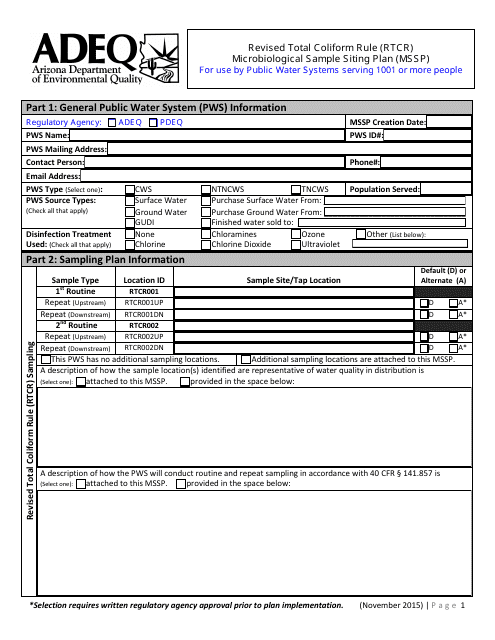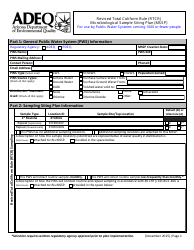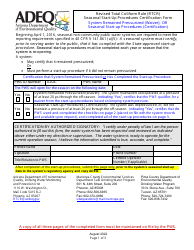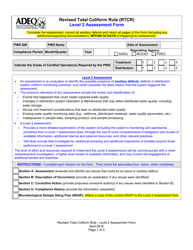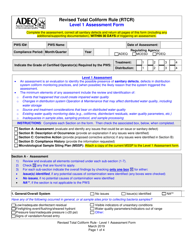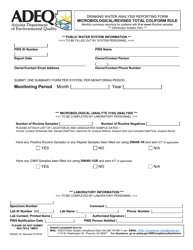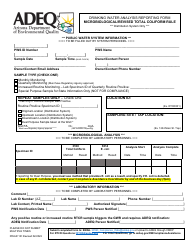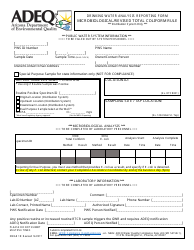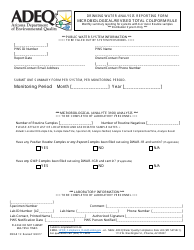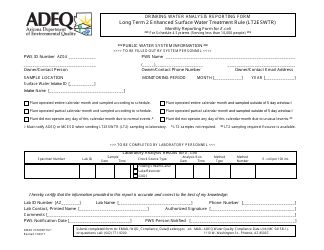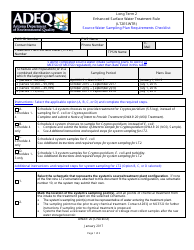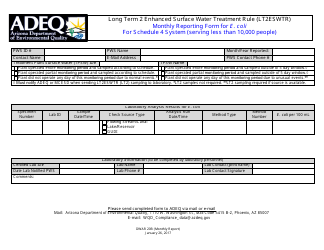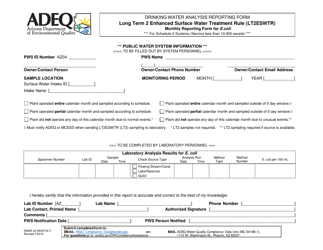Revised Total Coliform Rule (Rtcr) - Microbiological Sample Siting Plan (Mssp) - Public Water Systems Serving 1001 or More People - Arizona
Revised Public Water Systems Serving 1001 or More People is a legal document that was released by the Arizona Department of Environmental Quality - a government authority operating within Arizona.
FAQ
Q: What is the Revised Total Coliform Rule?
A: The Revised Total Coliform Rule (RTCR) is a regulation aimed at ensuring the safety of drinking water by monitoring the presence of coliform bacteria.
Q: What is a Microbiological Sample Siting Plan?
A: A Microbiological Sample Siting Plan (MSSP) is a plan that outlines the locations where water samples for coliform bacteria testing should be taken in a public water system.
Q: Who does the RTCR and MSSP apply to?
A: The RTCR and MSSP apply to public water systems serving 1001 or more people in Arizona.
Q: Why is coliform bacteria testing important?
A: Coliform bacteria are indicators of potential contamination in water, and their presence can indicate the presence of harmful pathogens. Testing helps ensure the safety of drinking water.
Q: What are the requirements for the MSSP?
A: The MSSP must include sampling locations representative of the different zones within the distribution system. The number of locations and sampling frequency are determined based on the population served.
Q: Who is responsible for implementing the RTCR and MSSP?
A: Public water systems serving 1001 or more people in Arizona are responsible for implementing the RTCR and developing the MSSP.
Q: Does the RTCR and MSSP apply to smaller public water systems?
A: No, the RTCR and MSSP only apply to public water systems serving 1001 or more people in Arizona.
Q: What happens if a public water system fails coliform bacteria testing?
A: If a public water system fails coliform bacteria testing, they are required to take corrective actions, such as investigating and addressing the source of contamination, and notifying the public.
Form Details:
- Released on November 1, 2015;
- The latest edition currently provided by the Arizona Department of Environmental Quality;
- Ready to use and print;
- Easy to customize;
- Compatible with most PDF-viewing applications;
- Fill out the form in our online filing application.
Download a fillable version of the form by clicking the link below or browse more documents and templates provided by the Arizona Department of Environmental Quality.
